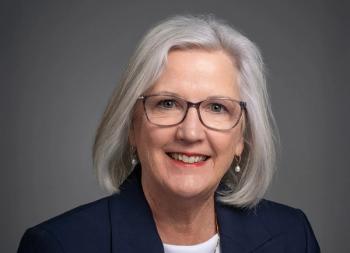
Text messages can reduce hospital readmissions: Study
Researchers found an automated, 30-day text messaging program engaged patients and lowered their odds of needing acute care services.
A text may go a long way to helping a patient avoid a return trip to the hospital, a new study suggests.
Researchers from the University of Pennsylvania studied the use of an automated text message program sent to patients after they were discharged from the hospital. Researchers found the program led to a 41% reduction in the odds of 30-day use of acute care resources. The program reduced the odds of readmission to the hospital by 55%, the study found.
In addition, the text messaging program had a higher rate of patient engagement than traditional follow-up phone calls after discharge. The findings were published Oct. 26 on
The authors said they believe it’s the first study to test the merits of a texting program on post-discharge outcomes.
“The findings of this cohort study suggest that an automated texting program to support primary care patients after hospital discharge was associated with significant reductions in use of acute care resources,” the authors wrote. “This patient-centered approach may serve as a model for improving postdischarge care.”
Hospitals and health systems have been looking more closely at ways to improve discharge and follow-up with patients after they leave the hospital. Since health systems can receive financial penalties from Medicare for higher rates of readmission, hospitals have plenty of incentive to improve transitions to home and ensure patients are getting the follow-up care they need.
Researchers tested a 30-day, automated text messaging program at a Penn Medicine primary care practice and compared it against another Penn Medicine practice that didn’t use texting to check in with patients. The program ran from January 27 through August 27, 2021. Patients who didn’t have phones capable of text messages weren’t included in the trial program.
The text program offers some benefits, including saving some staff time, researchers said. The texting program also provides what researchers called “a low-friction medium for patients to initiate interactions.”
Patients would receive introductory messages explaining the texting program. Patients would be asked if they had scheduled a follow-up appointment with primary care practices after discharge, and if they had not, they would get help in making an appointment if needed.
Those patients in the texting program would get a series of messages over the next few weeks, eventually tapering over the 30-day period. Patients would get three text messages in the first week, two texts during the second week, and one text each week for the remaining three weeks.
Patients would be asked if they needed any help. If patients said “yes,” they would get a follow-up text with options such as “I don’t feel well” or “I need help with my medication.” The practice would follow up with a phone call.
Most patients accepted the program. The vast majority (82.8%) of patients answered at least one of the introductory text messages, which far surpassed the traditional phone calls, researchers said.
Patients could opt out of the program at any time, but few chose to stop the texts. Only 8.6% of the patients opted out of the text messaging program before the end of the 30-day period. The program enjoyed high rates of satisfaction among patients, the researchers said.
The authors said the texting program meshed with the practice’s workflow. “The program’s high degree of automation required minimal effort beyond usual care,” they wrote.
Ultimately, the researchers concluded that “an automated texting program to support care management for primary care patients after hospital discharge is highly feasible and acceptable.”
The texting program was built and managed by Way to Health, a National Institutes of Health–funded platform that provides automated technology.
Penn Medicine previously found






























